Extended Project Qualification results
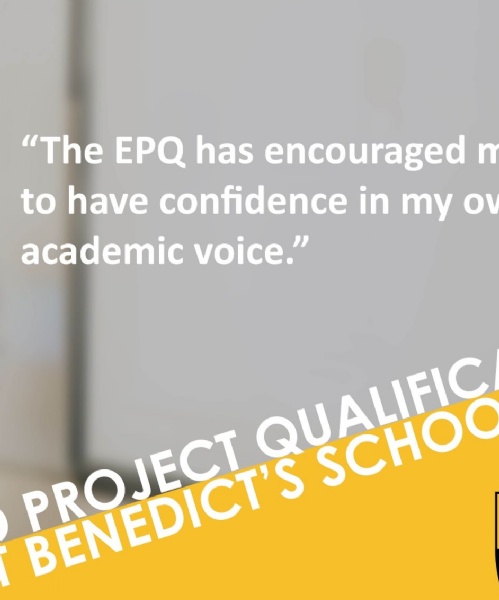
Sixth Form students at St Benedict’s have just received excellent EPQ results, with 81% securing A* to B, 54% achieving A* to A, and one candidate achieving full marks!
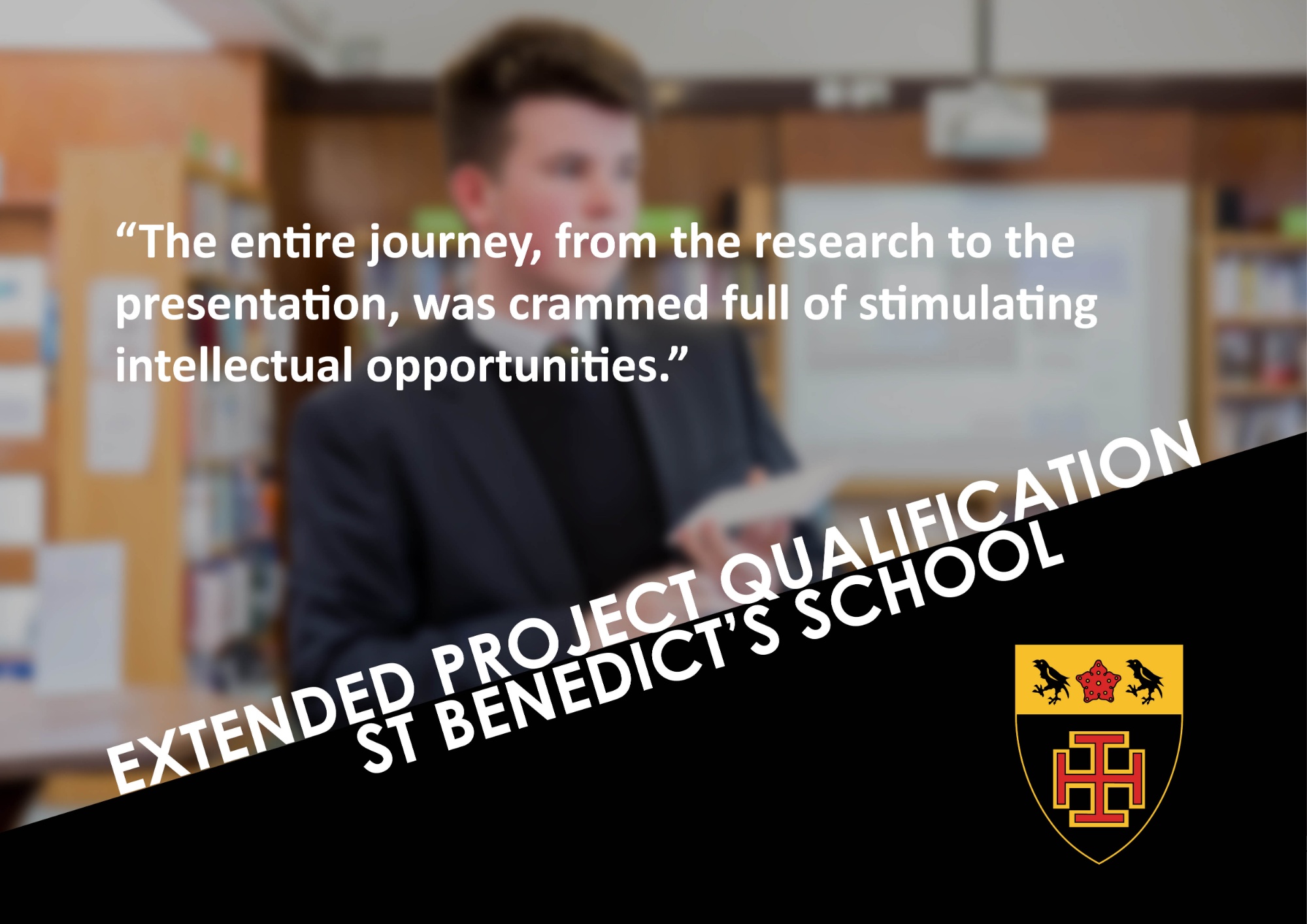
The Extended Project Qualification provides students with an excellent opportunity to delve deeper into subjects which interest them, learn effective research skills and gain confidence in giving presentations. This particular cohort, who are all in Year 13 at St Benedict’s, have done so in the midst of a global pandemic, conducting their research online, receiving support from supervisors online, and giving their final, live presentations via Microsoft Teams.
At a time when teaching and learning has again moved online, the ability to be able to navigate using critical digital literacy skills has never been more important nor more necessary."
Dr Greenhough, Head of EPQ at St Benedict’s.
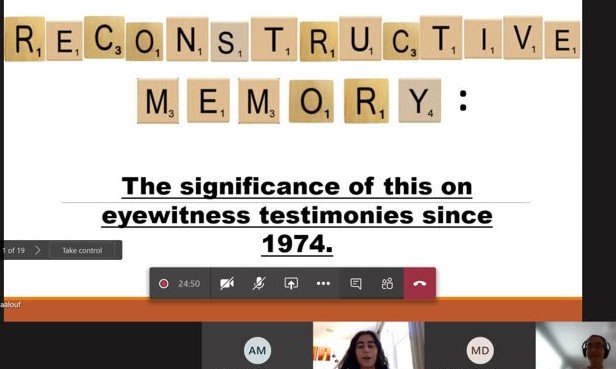
It is testament to the inner resilience of all the students who brought their research projects to completion, as well as their academic prowess, that they still secured outstanding results in such unprecedented times."
Fortunately, a number of institutions such as the Wellcome Library and the London Library, have made their resources available online over lockdown, while several universities have continued to provide excellent research resources for EPQ students. “At a time when teaching and learning has again moved online, the ability to be able to navigate using critical digital literacy skills has never been more important nor more necessary as a skill, a skill learned by all EPQ students and effectively put into practice”, said Dr Greenhough, Head of EPQ at St Benedict’s. “It is testament to the inner resilience of all the students who brought their research projects to completion, as well as their academic prowess, that they still secured outstanding results in such unprecedented times.”
Zoe Ziprin, who received full marks for her project on medical ethics, summarises her experience of the EPQ:
“I have learned much from my EPQ journey. First of all, I have learned better time management, as well as how to prioritise my tasks. I did this by writing down a set of goals to do with my EPQ every week to ensure that I had everything completed on time. Also, I learned about research skills such as the Boolean Operators (and/or/not) which I used on several data bases including JSTOR, New Scientist and the British Medical Journal. On top of that, I learned more about research ethics from a workshop conducted by the University of Leeds. At this workshop, I was able to discuss my survey and I learned ways to better discharge my duty of care when conducting research in the future. (An example of this is to include information of helplines at the end of my survey.) Another workshop given by the University of Leeds also taught me about critical thinking, which was about questioning the authority, reliability and reference of sources. Moreover, I learned about the Harvard referencing system as well as in-text citations, extremely useful not only for my written report but also for my A level Chemistry practical write-ups. Finally, I learned how to present using Microsoft Teams, and the importance of ensuring that a non-specialist audience understands your research: one way of doing this was to include a glossary of all the technical terms I would be using, at the beginning of my presentation.”
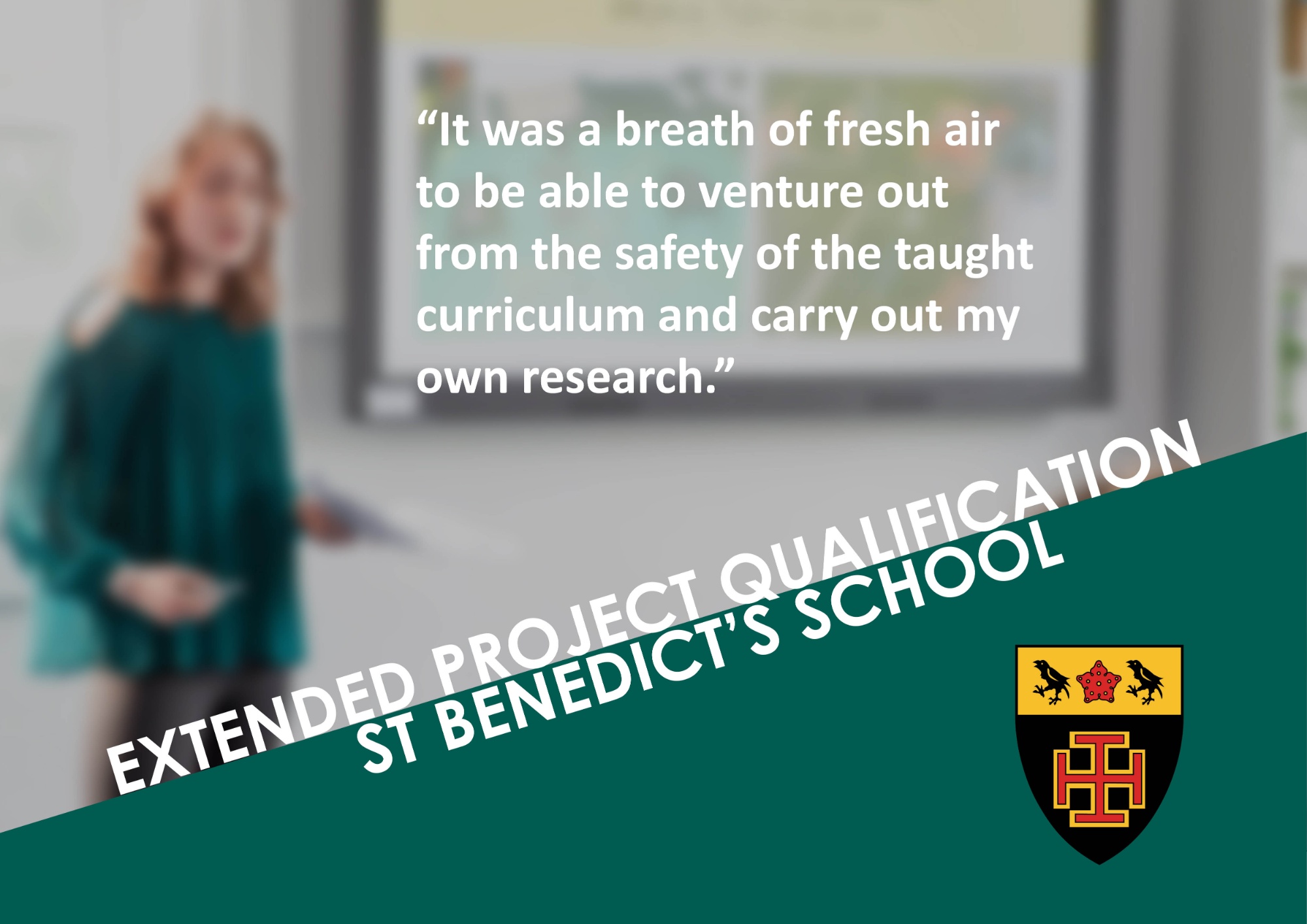
Stephanie Maalouf gives this account of researching her EPQ project:
“Undertaking this EPQ project has given me countless skills that I know will help me in the near future. For example, I Iearnt how to think critically and how to make notes more efficiently in a talk, from an EPQ expert from the University of Leeds, and I have already begun using these skills in my other A level subjects. I also discovered the meaning of the terms ‘confirmation bias’ and ‘ontological position’, and was surprised how difficult it was, once aware of this bias, to write from a neutral point of view. In terms of research, I learnt how to use keywords, to narrow my research on databases such as JSTOR and even discovered how useful social media can be when finding sources and information; never before would I have considered downloading Twitter for an educational purpose.
After my trip to the Wellcome Library, I discovered many chapters relating to my topic, hidden in books I wouldn’t have looked twice at online. I visited this library a number of times as I was lucky to have been given a pass, and now feel a lot more confident navigating my way through a large academic library.
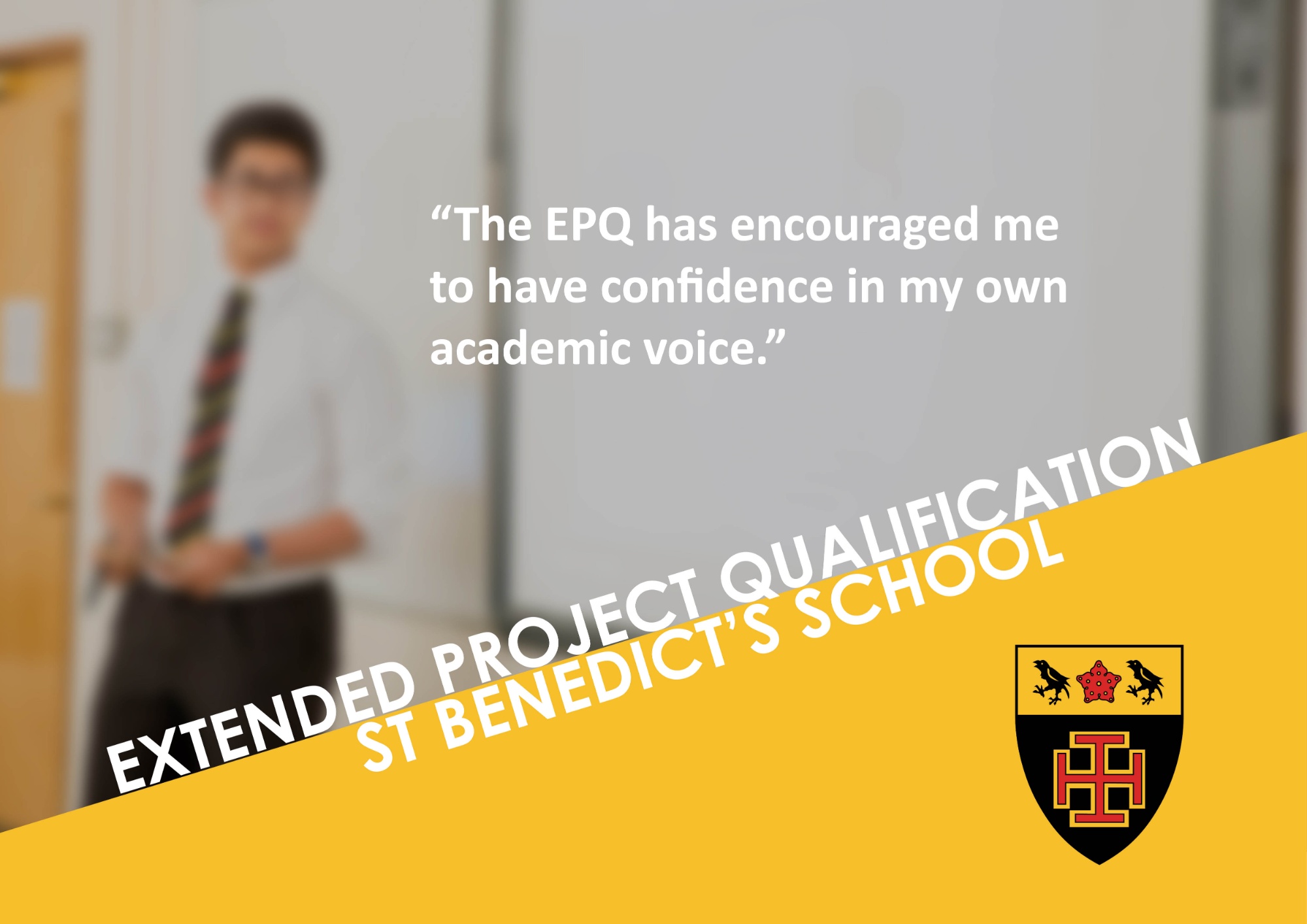
Some of this year’s EPQ Topics
Frederick Bartlett: Anthropology: A personal exploration into post-1948 South African race relations within politics and social conformity. (A*)
Tilly Glide: Cannabidiol and cannabidiol-based medicines: A consideration of their uses to treat bipolar disorder patients that experience psychotic symptoms in the United Kingdom. (A*)
Stephanie Maalouf: Reconstructive memory: the significance of this on eye-witness testimonies since 1974. (A*)
Jovin Sahota: To what extent has Tottenham Hotspur Football Club regenerated the N17 postcode? (A*)
Sorcha Tipping: American biographical films (2009-2018): An analysis of the ‘White Saviour Narrative’ in ‘The Blind Side’, ‘Green Book’, and ‘12 Years a Slave’. (A*)
Lauren West: To what extent are stigmas a contributing factor in the discussions surrounding menstruation? (A*)
Zoe Ziprin: A consideration on whether physician-assisted suicide should be legalised in the UK for those with a terminal illness. (A*)
Aggie Bright: The adoption of the poppy as a symbol of patriotism. (A)
Murdo Duguid: Should psychedelics be legalized in the UK for use in medical therapy? (A)
Olivia Fuchs: The science behind Hyperhidrosis; Why is there no cure? (A)
Mia Simpson: Do FAD diets lead to an increase of Orthorexia Nervosa in adolescents? (A)
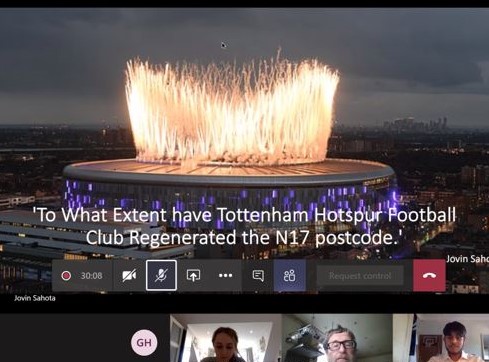
.